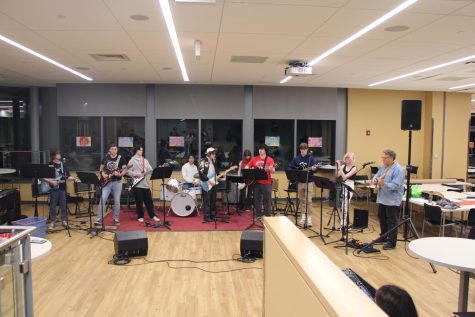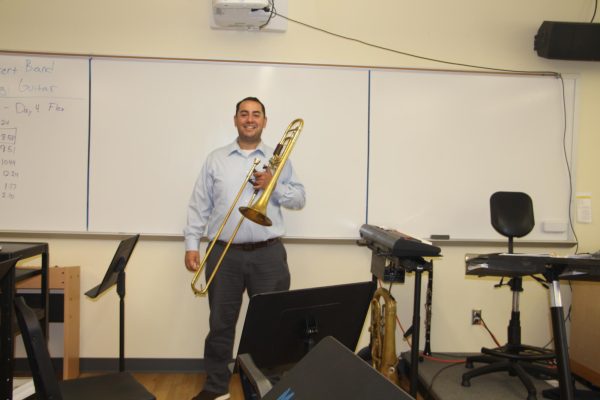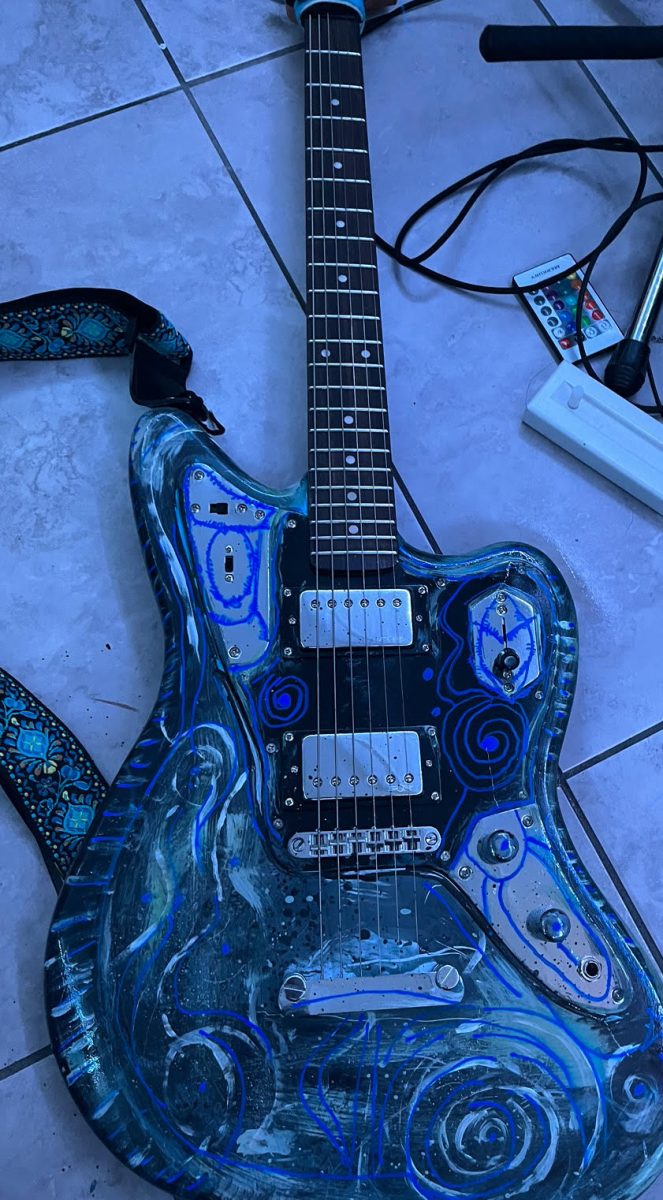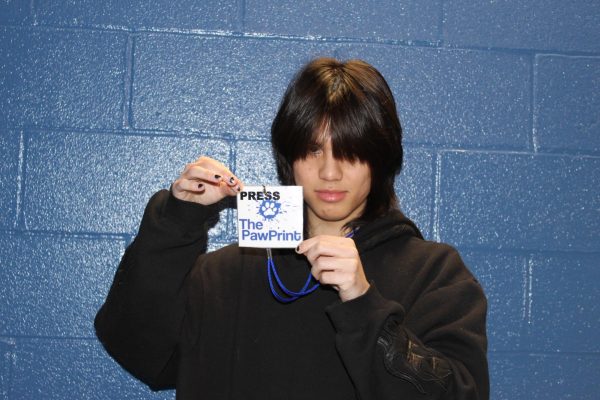A lot of people who want to learn how to play guitar, drums, bass and more say it’s too much work. Instruments are complicated in their own ways. It takes a lot of time, dedication, and practice. Some people pick it up faster than others, and that’s okay. For me, it took a while to learn how each instrument “functions.” But somehow, I found a way to figure it out.
In the video, Play by Dave Grohl, frontman of the Foo Fighters, former drummer of Nirvana and Foo Fighters, Dave plays pretty much every frequent rock instrument, from the piano, to the drums and so on. All the instruments are synced. To the music theory readers, it all looks simple on paper. There are the leads and rhythm. It’s a very straightforward formula, yet it feels so fulfilling as if it were all made by the same person. The same musical cohesiveness embodies the direction the musician wanted to take.
The guitar and drums are very different instruments, yet they sound oddly similar in this song. In an interview from The Off Camera Show, Dave Grohl said, “I like to play guitar like a drummer.” He adapts to his instruments based on what he already knows from his previous instrument. In other words, does correlation equal causation? Is there a universal theory behind every instrument that the aspiring musicians use when learning the next one? The answer is yes. It’s called music theory. Essentially music theory is the fundamental understanding of the “language” of music from harmony, melody, and rhythm. It doesn’t have to be something that’s formally taught either. Many talented musicians have a concept of music theory despite not having any formal lessons including Santana, Prince, Jimi Hendrix, and, of course, Dave Grohl.
So to prove my theory that all musical instruments are correlated, I decided to actually learn multiple instruments. First, I learned how to play guitar by taking the Beginning Guitar Class last year with retired music teacher, Raymond Smith/Chief. It was an agonizing experience fueled by actual blood from the thin copper strings of the acoustic guitar, along with constant beratements from a experienced musician who’s seen it all.

Then I decided to take the Morgan Rock Band Class, with only three months worth of guitar experience. It was stressful, with lots of other musicians leagues above me in terms of skill and experience. Yet, I persevered and ultimately improved to a more intricate level. A very large margin of me regretted joining Rock Band, yet I also appreciated it. I made sure to listen to every bit of Mr. Smith’s advice and criticism of each instrumentalist and vocalist. I learned as he critiqued the drummer’s inability to maintain proper time when performing drum fills, the constant mediocrity stemming from the inexperienced or shy rhythm guitarists (including me), and the clearly overworked, unenthusiastic lead vocalists battling internal conflicts (including me also). It seemed that despite our shortcomings, at least the bass lines weren’t completely terrible. There were many people who took Rock Band that year, and I concluded that we found little strength in numbers.
I dabbled in bass guitar throughout that time, but never truly committed. Around January of last year, I finally bought an electronic drum kit. Playing drums to me was completely different from playing guitar. There were no buzzing barre chords, chances of going out of tune or strings breaking. Playing drums was just the simplicity of beating against a device that resonates friction at a specific rhythm. It was the least pretentious out of all the instruments I was going to learn, but by no means, any less technical. Playing drums was ridiculously fun, and learning how to do it was fun too,much more fun than learning how to play guitar. I was learning how to play the drums at a significantly quicker pace than learning how to play guitar. It could be because I already had prior musical experience with the guitar, but it could also be because I was simply more enthusiastic during the process of learning.

New band teacher Vidal Orduz, on the other hand, had a completely different experience when learning to play instruments. The first instrument he learned to play was the saxophone, something heavily reliant on music theory. He remembered some keys and notes being hard to reach. He originally thought he was pretty bad from middle school to high school, but his teachers all thought he was competent enough to play solos. Eventually, Mr. Oduz got a degree in playing the saxophone in his sophomore year in college. When he learned his next instrument, the baritone beagle, he found the process of learning significantly easier since he knew how to read music. Although Mr. Oduz is the current Rock Band and beginner guitar teacher, this is his first year playing the guitar. At first he was stressed and confused, but realized that he just needed to practice specific chord shapes and patterns each day. He noted over time, he felt more confident to the point that he could actually teach people how to play the guitar.
Mr. Oduz also told me that learning music theory doesn’t necessarily halt creativity, despite what many musicians like Kurt Cobain believe. If anything, music theory benefits creativity. Having a stronger fundamental understanding of the art doesn’t necessarily mean that musicians are restraining themselves. Instead, if anything, it creates a higher ceiling because now they actually know what boundaries to break.
Learning how to play an instrument isn’t as hard as everyone thinks. It ultimately takes practice, consistency, and enthusiasm. If you want to make your life easier when learning multiple instruments, learn music theory to make the process easier.


